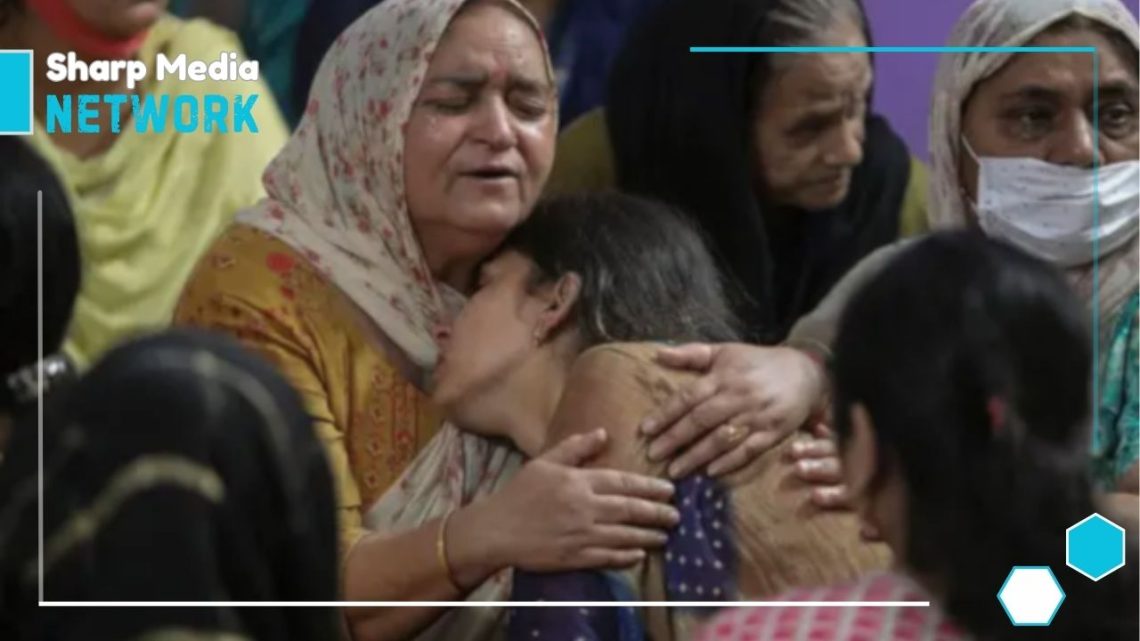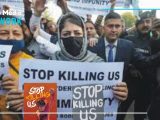
Extrajudicial Killings and Torture in IIOJK: A Harsh Reality Under Indian Illegal Occupation
February 7, 2025 Off By Sharp MediaThe recent killings of civilians by Indian forces in IIOJK highlight a disturbing and persistent pattern of extrajudicial killings and custodial torture, exacerbating the human rights crisis in the region.
Extrajudicial killings and custodial torture by Indian forces in Indian Illegally Occupied Jammu and Kashmir (IIOJK) have become a tragic and regular occurrence, with recent incidents further highlighting this ongoing crisis. Two separate cases of extrajudicial killings have emerged—one in Baramulla district and the other in Kathua district—both of which have raised serious concerns over the conduct of Indian troops.
In Baramulla, truck driver Waseem Majeed was shot dead after Indian soldiers opened fire on his vehicle at Sangrama chowk on a Wednesday night. The Indian police claimed that the vehicle failed to stop at a checkpoint, prompting them to fire at the truck’s tires. However, eyewitnesses have contradicted this account, asserting that the troops shot at Waseem without any warning and that he had never been signaled to stop. This discrepancy raises further doubts about the legitimacy of the police’s version of events.
Meanwhile, in Kathua, a young man named Makhan Din was arrested under the pretext of being associated with pro-freedom activists. He was later found dead in custody, with authorities claiming it was a suicide. However, local residents firmly maintain that Makhan was subjected to brutal torture and beaten to death by Indian forces. This claim of custodial torture is all too familiar in Kashmir, where countless similar cases have been reported over the years.
These incidents are not isolated but rather part of a broader and disturbing pattern of extrajudicial killings by Indian troops in Indian Illegally Occupied Jammu and Kashmir (IIOJK). Innocent Kashmiris, especially youth, are often targeted with fabricated charges, subjected to severe torture, and killed either in custody or staged encounters. This violence, carried out under the protection of draconian laws, has claimed the lives of over 96,000 Kashmiris since 1989, with more than 7,000 of them dying in custody.
Critics argue that these acts of violence are intended to instill fear and suppress the Kashmiris’ UN-recognized right to self-determination. The ongoing trauma of killings, arbitrary arrests, raids, and torture is inflicted under the guise of counterterrorism measures, leaving Kashmiris living in constant fear. Human rights organizations and activists worldwide are increasingly calling for an independent investigation into the grave human rights violations occurring in IIOJK.
Despite the relentless brutality, Kashmiris continue to resist and push for their right to self-determination. As one anonymous activist stated, “Modi’s regime can kill our youth, but it cannot defeat our struggle for freedom.” Meanwhile, the demand for the United Nations to conduct an independent inquiry into the atrocities committed by Indian forces in IIOJK grows louder with each passing day.

